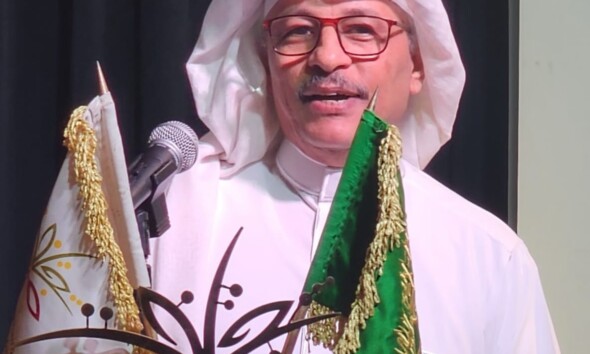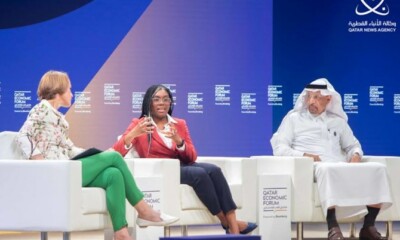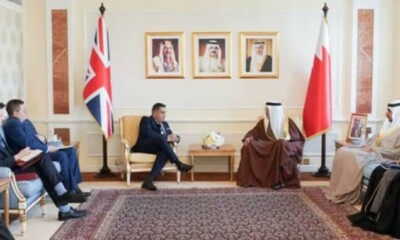Home » Interviews » Terrorism Specialist Dr. Shimaa Samir: Multipolarity is Undermining Nuclear Deterrence, and it is Possible to Tame Extremist Ideology!
Interviews
Terrorism Specialist Dr. Shimaa Samir: Multipolarity is Undermining Nuclear Deterrence, and it is Possible to Tame Extremist Ideology!
Published
2 days agoon
By
Huda Az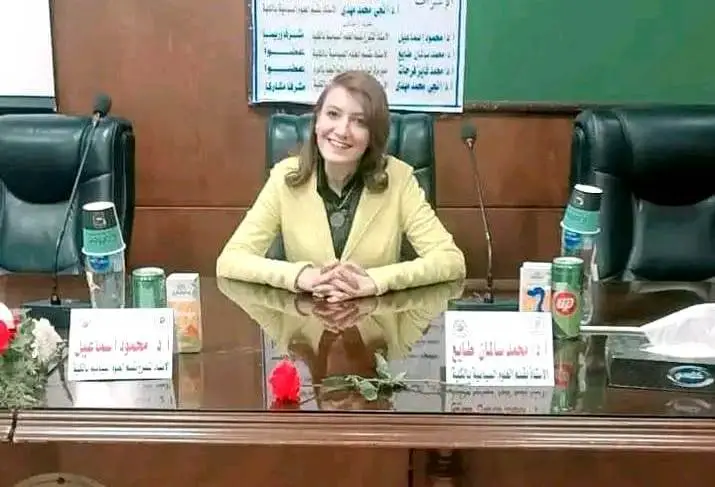
Religion, politics, and the economy are all intertwined because of the complexity of modern international relations and the overlapping political and strategic borders between nations vying for hegemony.
Conflict-related factors at the local, regional, and global levels contribute to the warlike atmosphere and ideological and intellectual polarisation fervour.
In the midst of all of this, young people’s energies are still too great. They are susceptible to being mishandled, exploited, and recruited by both powerful international blocs and extremist organisations.
Interview by Mohsen Hassan
The world is experiencing a surge in armed conflict, with wars raging and suspicious movements escalating. This ambiguity makes it difficult to understand and analyse various issues and allows for deception and subjugation of minds and ideas for destructive goals that cross national boundaries.
Professor Dr. Shimaa Samir, a specialist in international relations, terrorism, and armed groups, was the target of Arabisk London’s enquiries regarding the political, economic, and security environment.
The interview aimed to gather her thoughts, expectations, and evaluations on various topics, including global peace and security threats, the UK situation, the history of nuclear conflict, the future of the Gulf-Iranian consensus, and the global map of violent and extremist groups’ spread. The interview sought her unbiased evaluations on these topics.
The State of the World Today
Firstly, how does Shimaa Samir assess the current international situation from her and extremist groups’ perspectives?
The world is currently going through a very delicate and complicated time. Economic problems like poverty, unemployment, wealth inequality, and economic collapse in war-torn nations are made worse by geopolitical tensions stoked by the competition of superpowers and their foreign interventions.
The security void left by the US withdrawal from Afghanistan, the inadequacy of governments and security institutions in Sahelian African nations, and the power of foreign armies of major powers that manipulate the terrain through Wagner mercenaries and private security firms all contribute to this.
These elements, among others, jeopardise stability and cause chaos in international security. This gives terrorist organisations and extremist groups a chance to increase their power and influence over vulnerable and underdeveloped areas. After that, they use financial incentives to attract people to these areas. Additionally, they use war and hegemony as justifications for their terrorist acts and attacks, as well as to further their agendas, which aids in recruiting new members.
Bringing in Trends of Violent Ideology
Which areas of the world, in your opinion, are most likely to see violent ideological trends?
Extremism thrives in Somalia and the Sahel region due to corruption, ineffective governments, and territorial inefficiency. Civil wars and ethnic conflicts, similar to those in South Sudan and Darfur, further erode the state, leaving it vulnerable to terrorist groups.
Boko Haram in Nigeria exploits sectarian conflicts by dividing people into Muslim and Christian or ethnic groups, and their cross-border smuggling of weapons, forged identities, and criminal elements is facilitated by the weak local security services’ inability to enforce border controls or manage organised crime gangs. 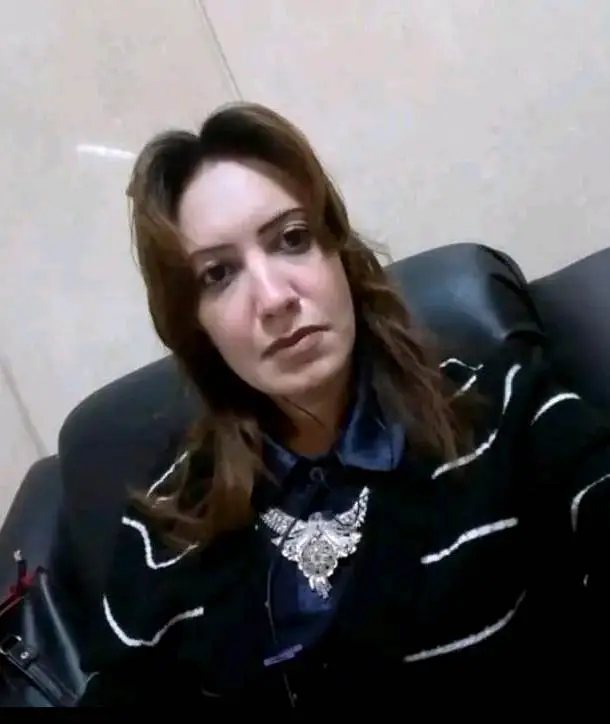
Due to desertification and drought, climate change also leads to resource conflicts, like those in northern Nigeria and central Mali, which provide ideal conditions for terrorist organisations to recruit new members.
According to the Asian model, Central Asia, especially Afghanistan and Pakistan, is a breeding ground for terrorism and extremism for several reasons. These include the mountainous terrain of these nations, which makes it challenging to find terrorist elements that reside there, and the Durand Line, the lengthy border between Afghanistan and Pakistan that allows al-Qaeda and ISIS to move freely.
Numerous tribal regions in Pakistan, including Waziristan and Khyber Pakhtunkhwa, are ungoverned by the central government and serve as safe havens for armed groups; likewise, Lashkar-e-Taiba, which represents the Sunni-Shiite conflict, targets the Shiite minority in both Pakistan and Afghanistan.
Generally speaking, the economic crises in these two nations encourage young people to join extremist groups and organisations, whether for armed action or other questionable activities like dealing in weapons or drugs (the most well-known of which is Afghan opium).
Multiple wars in conflict areas have allowed extremist groups to accumulate heavy weapons, propagate ideologies, primarily found in Pakistan and Afghanistan, and involve foreign assistance, interventions, and proxy wars, resulting in a significant arsenal of weapons and ideologies.
UN Relief Agencies’ Functions
How satisfied is Shimaa Samir with the results, functions, and related security considerations of UN relief agencies?
UN relief initiatives have advantages and disadvantages. Providing food assistance through the World Food Programme in nations like Somalia and Yemen is one of the benefits, as it lessens the financial recruitment of youth by terrorist groups.
Reducing the recruitment or targeting of youth by terrorist groups is another benefit of aiding refugees and internally displaced people who are fleeing wars in nations like Afghanistan and Syria.
In addition to lowering the risk of recruitment by ISIS, Boko Haram, and other groups, offering education and rehabilitation programs for kids and starting awareness-raising campaigns like the UN’s Preventing Extremism Initiative also help to correct extremist ideology through the media.
However, post-conflict reconstruction initiatives help to stabilise communities and bolster security, which in turn hinders terrorist groups’ operations. There are drawbacks, such as the difficulty in reaching armed group-controlled regions, like northern Mali or portions of Pakistan, where UN team members frequently face threats of kidnapping or murder. Additionally, some regions experience an imbalance in funding. For instance, certain regions of Ukraine, like Mali or Burkina Faso, receive more assistance than others.
As is the case with the Taliban, who are accused in some reports of controlling a portion of international aid, some aid also occasionally ends up in the hands of armed groups that tax or control it to fund their operations. Moreover, there are sporadic bureaucratic issues that hinder the delivery of aid, such as the lack of coordination between local authorities and UN agencies during famines in the Sahel.
Captured International Relations
Why, in your opinion, have a select few politicians taken control of international relations? Does this situation have the potential to have a significant impact on the world?
Unfortunately, a small number of powerful nations control the majority of the world’s population and have the means to govern it militarily, politically, and economically. Some nations, like the US, Russia, China, France, and the UK, can veto decisions, and they frequently prioritise their national interests over those of the general public or humanitarian concerns.
Further, there are economic blocs like the International Monetary Fund and the G7 that dominate global financial policies without fairly representing the interests of developing nations. Also, there are military alliances that play a significant role in international conflicts, like NATO.
Its stated goal is to create collective security, but in reality, it fuels rising tensions and war-level armaments. This happens through fostering antagonistic poles, encouraging the arms race, cutting down on communication opportunities, and downplaying the importance of diplomacy. That brings us to the last part of the question: Will it cost the world dearly? Of course, yes. The global community continues to bear the consequences of the 2003 war on Iraq, and the NATO expansion into Ukraine is causing a comparable cost.
Protests against governments that remain silent on certain issues, most notably the West’s silence on Israeli crimes in Gaza, are another way that the public is rejecting and dissatisfied with the ruling elites. Other issues include the Israeli-Palestinian conflict, the decline of international legitimacy, and the United Nations’ diminished credibility and capacity to uphold international peace and security.
Present-Day Nuclear Deterrence
What analytical principles can we use to evaluate the concept of nuclear deterrence today? What changes has Shimaa Samir noticed in this concept?
The conventional idea of nuclear deterrence depends on the idea that one party cannot acquire nuclear superiority by persuading the adversary that any attack will be met with destruction due to the balance of power.
The idea of nuclear deterrence has, however, undergone several changes in recent years, the most significant of which are the proliferation of nuclear actors and the dismantling of the major powers’ monopoly. For instance, Iran is close to acquiring nuclear weapons, and North Korea has long-range missiles that can penetrate deep into the United States, endangering the Middle East’s equilibrium.
Furthermore, there are no international treaties about the nuclear dispute between India and Pakistan. All of this emphasises how challenging it is to accomplish complete deterrence in a multipolar system. Although there is still nuclear deterrence, it is not as effective as it was during the Cold War, particularly since terrorist groups will be attempting to obtain such weapons, making the situation even more dangerous.
Reportedly, ISIS is looking to buy nuclear materials from smugglers in Eastern Europe, according to reports credited to German intelligence. Belgium discovered in 2016 that ISIS was planning to steal radioactive materials from a nuclear reactor. Such issues carry a lot of risks because of the potential for terrorist groups to produce a dirty bomb that could cause significant harm and be used by these groups to negotiate and pose a threat to governments and societies.
Amid the Conservatives and Labour
What is your opinion, Shimaa Samir, of the reform differences between the current and future regimes of the Conservative and Labour parties in Britain, based on your scholarly observations?
Recently, both parties have experienced serious economic difficulties, including inflation and the growing cost of living. In the future, the political philosophies of each party and the social and economic circumstances the nation faces will determine the reform disparities between them.
Brexit will have a big effect on these orientations as well. But generally speaking, the current Labour Party supports reforms that emphasise social justice and a larger role for the state, while the Conservatives support reforms that emphasise the free market and lessen government intervention.
Brexit-related losses
How pleased is Shimaa Samir with the British Labour government’s efforts thus far? Can this administration escape the losses brought on by Brexit?
As I previously stated, the emphasis on social justice, public service delivery, and equal opportunities for all citizens are characteristics of Labour’s policies. Nevertheless, some criticise the party’s policies and believe they are insufficient, while others see it as doing its best to lessen the harm and find solutions, given the party’s severe economic difficulties in addition to those brought on by Brexit.
To make up for the losses from Brexit, I think the current administration is working to preserve close trade ties with the EU while also looking into new trade prospects with other nations.
The Female Aspect on a Regional and Global Level
Does Shimaa Samir anticipate a rise or fall in the recruitment of female extremists on a regional and global scale as a result of the patterns and trends of increasing violence that cut across national boundaries?
Given the various roles they play, such as providing ease of movement at checkpoints, engaging in advocacy and digital recruitment through social media and the organisation’s technical platforms, and serving as wives to members of the organisation and nannies to children recruited as a new generation of jihadists, female elements are crucial to terrorist organisations.
Thus, terrorist groups will persist in using the female element to further their objectives by recruiting women through humanitarian crises like natural disasters, wars, and conflicts like those in Africa and the Middle East. Consequently, we can say that there is a relative expansion that focuses on women’s indirect roles because of security pressures, with an emphasis on digital activity.
United Kingdom and the United States
What is your opinion of the historical relationship between the US and the UK? In this context, are there any compromised British concessions?
The United States and Britain have one of the strongest alliances and relationships. But as the United States has become a superpower and the United Kingdom’s influence around the world has diminished, they have seen changes and compromises on the British side. During the Cold War, Britain became the US’s European arm and its most important ally in the wars in Iraq and Afghanistan.
The use of American military bases by Britain without the right to protest Washington’s policies, the extradition of spies to the United States without a warrant or British trials, and other concessions made during the post-Cold War era made it a subordinate such as the 2023 Osama Hussein case; and involvement in American conflicts without a definite British interest. Britain was a superpower empire before these concessions, but now, it is a subservient state.
Russian-American Cold Peace
The fluctuations in U.S.-Russian relations have left some perplexed. What does Shimaa Samir think is causing this confusion? Are the two nations currently experiencing a cold peace?
The times when the two nations’ relations diverged and converged are the cause of the confusion. There are phases of rapprochement, like the cooperation between Russia and the United States following September 11, or disarmament accords, and crises, like the 2008 intervention in Georgia or the 2014 annexation of Crimea. 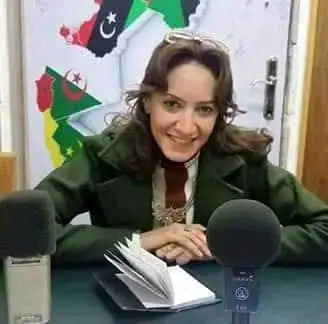
Disagreements also exist between reality and media discourse. For instance, even though diplomatic ties and indirect economic transactions continue, Russian discourse, particularly after 2022, portrays the West as an enemy, and Western media discourse portrays Russia as an enemy.
Moreover, analysts seem perplexed because competition in Russia or Ukraine does not preclude cooperation on other files and issues, such as those about preventing the spread of nuclear weapons and fighting terrorism. Indeed, the current state of affairs is one of “cold peace,” with the arms race and the Ukrainian crisis causing fierce competition that is more akin to tension than cooperation.
Riyadh and Tehran
How does Shimaa Samir feel about the current ceasefire between Tehran and Riyadh? Can Tehran and Riyadh ever agree on nuclear deterrence?
The history of tension between the two nations makes it challenging to maintain the truce, so we frequently approach this relationship with caution and expectation. Additionally, Iran continues to have regional agendas that undermine trust between the two nations, particularly in the context of regional problems like Yemen, Syria, and Lebanon.
One could argue that reaching a nuclear deterrence agreement between Riyadh and Tehran is difficult and calls for intense diplomatic efforts as well as international agreement, particularly in light of Iran’s potential to develop nuclear weapons, which would endanger regional security.
Once More, the Asian Tigers
According to your analysis, will a change in the military-economic power balance in favour of the rising Asian tigers surprise the world? If that occurs, what do you anticipate?
Asian nations are currently growing militarily and economically at a rapid pace. Even though this expansion is still in its infancy, it might portend a future change in the distribution of power. If this happens, the world might see a variety of political poles as well as shifts in economic blocs and military alliances towards collaboration with developing Asian nations on both the military and economic fronts.
As emerging Asian nations aim to increase their influence to maintain continuity, we might also see more disputes over areas of control and influence.
The Extremism Industry
In your view, is it possible to subtly tame the elements of extremist thought? How does Shimaa Samir feel about the extremism industry, locally and globally?
Unrest, conflicts, and disputes are often the driving forces behind the extremism industry, which has regional dimensions. To further their objectives, certain regional powers aim to create the conditions that encourage extremism. For geopolitical reasons, some nations also try to directly or indirectly aid extremist groups, which heightens tensions and conflicts in the region.
There are also global aspects; certain nations may employ extremist groups and provide them with material and logistical assistance to topple governments that conflict with their goals, policies, and interests. Regarding the prospect of subtly restraining extremist ideology, it is feasible, but it calls for long-term plans and an all-encompassing strategy that incorporates coordinated global initiatives at the intellectual, educational, and economic levels.
The objective is to tackle the underlying factors that lead to extremism and the motivations behind youth recruitment into terrorist groups. Additionally, programs for repentance are being put in place for people who have already been recruited by terrorist groups and have since defected.
The Gulf’s Missing Piece
Considering established and new historical data, how does Shimaa Samir envision the Gulf Cooperation Council’s (GCC) nations’ political, economic, and security cohesion developing in the future? What, in this case, is the missing piece?
Among the many difficulties facing the GCC nations are economic ones and the requirement to diversify revenue streams rather than depend entirely on oil. The region also faces geopolitical tensions, growing security issues with organised crime, and the fight against terrorism and extremism.
The ability of the Gulf nations to adjust to changes in the region and the world while strengthening integration, coordinating efforts, and putting aside differences will determine how cohesive they remain in the future.
In this case, the necessity of strengthening international cooperation at the grassroots level as opposed to merely the governmental level is the missing piece. The sharing of knowledge in education and culture, among other areas, can help to activate this.
BRICS and the Future
In summary, will the BRICS bloc continue to expand and accomplish its strategic objectives, or will it eventually wane and disappear in favour of American dominance?
Utilising the elements that have contributed to BRICS’s growth—most notably, its geographic expansion through the addition of new nations—will be crucial to the bloc’s future and increase its influence.
As BRICS’s capacity to tackle its problems grows, it is expected to keep expanding. It is possible that the world will eventually experience multipolarity, which will allow BRICS to play a big part.
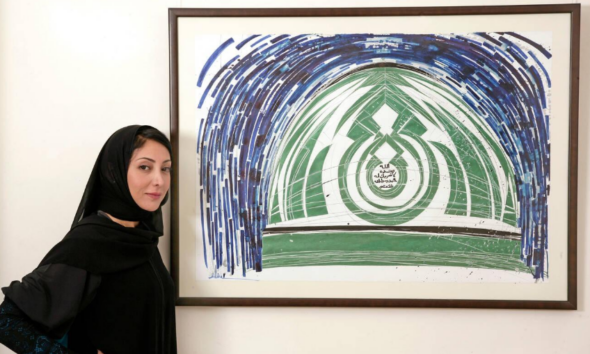
Lina Gazzaz: A Saudi Artist Who Painted History in Modern Colours!
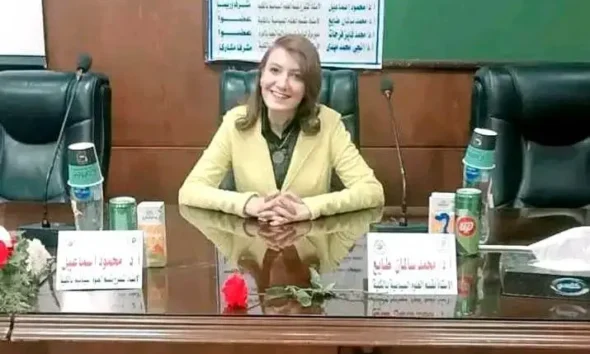
Terrorism Specialist Dr. Shimaa Samir: Multipolarity is Undermining Nuclear Deterrence, and it is Possible to Tame Extremist Ideology!
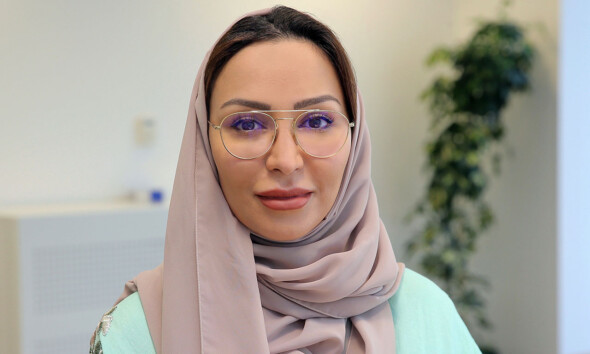
Daniah Orkoubi: A Saudi Entrepreneur and Technological Pioneer
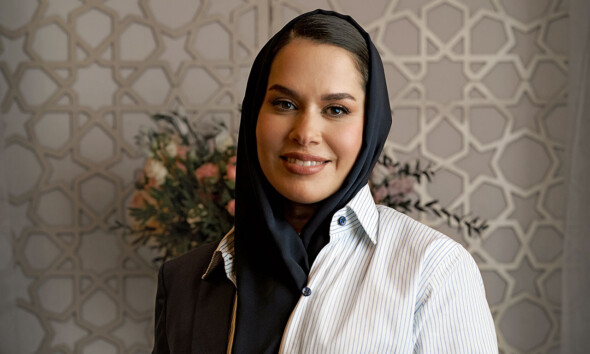
Saria Abdeen and Samt: Pioneering Saudi Efforts to Global Recognition

Jeddah’s Top Beaches for Women in 2025
